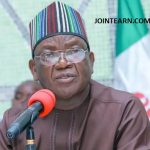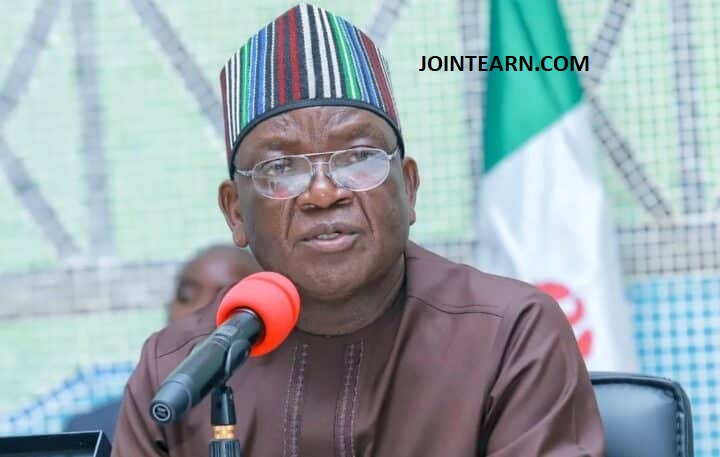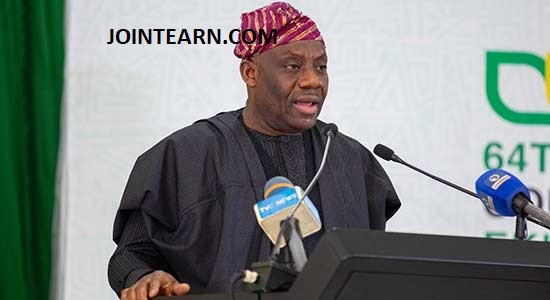A traditional ruler in Abia State has raised concerns over the federal government’s agricultural intervention programs, alleging that grants and loans meant to support genuine farmers are being diverted to individuals with no involvement in agriculture.
His Royal Majesty, Eze Chukwuemeka Onuoha, the traditional ruler of Umuekwule kingdom in Umuahia North Local Government Area, made the claims during a community development summit on Tuesday. The event, organized by the Abia State Farmers’ Cooperative Union, focused on improving rural livelihoods through sustainable agricultural practices.
Speaking to a gathering of farmers, government representatives, and civil society stakeholders, the monarch expressed frustration over what he described as the growing disconnect between federal agricultural initiatives and the people they are meant to benefit.
“These government grants and loans are good on paper, but in practice, they are not reaching the real farmers. Instead, we see politicians, their friends, and urban dwellers with no farmland receiving these funds,” Eze Onuoha lamented.
Disconnect Between Policy and Practice
According to the monarch, several young and elderly farmers in his community applied for various federal and state agricultural loans, including the Anchor Borrowers’ Programme and COVID-19 Agricultural Intervention Fund, but were either denied access or left in the dark after submitting applications.
“They call it a farmer-friendly policy, but who are these so-called beneficiaries? Many of our youths with hectares of land and experience in farming have never received a kobo,” he said.
Eze Onuoha, who has long advocated for rural economic empowerment through agriculture, warned that the misdirection of funds is dampening the morale of hardworking farmers and stifling food production.
He called on the Federal Ministry of Agriculture and Rural Development, the Bank of Agriculture, and the Central Bank of Nigeria to review their vetting and disbursement processes, insisting that the funds must directly impact grassroots communities.
Local Farmers Speak Out
Several farmers at the summit backed the monarch’s claims, sharing stories of repeated rejections and bureaucratic obstacles. Mrs. Amaka Ibe, a cassava farmer from Isiala Ngwa South, said she applied twice for government loans but received no feedback despite meeting all requirements.
“I even attended the training workshop organized by government agents. They took our data and photos, but nothing came out of it. Meanwhile, people we’ve never seen on a farm before are driving new cars and claiming they got agric loans,” she said.
Others alleged that application processes are often politicized or hijacked by middlemen, making it nearly impossible for genuine smallholder farmers to access support without connections.
Traditional Institution Demands Transparency
Eze Onuoha urged both federal and state governments to involve traditional institutions in the monitoring and implementation of agricultural programs in rural communities. He noted that traditional rulers are well-positioned to verify who is genuinely farming and who is not.
“Let the kings and local leaders be part of the verification process. We know our people. We know who tills the land and who pretends to,” he insisted.
He also suggested that cooperatives and community-based farmer groups should be prioritized in future disbursements to ensure collective accountability and traceability of funds.
Government Response
When contacted, a representative of the Abia State Ministry of Agriculture and Natural Resources, Mr. Chinedu Nwachukwu, acknowledged that while the government has made substantial efforts to support agriculture, there are gaps in the distribution process.
“We are aware of some discrepancies, and we are working to improve the system. The goal is to ensure that only verified farmers benefit from these funds going forward,” Nwachukwu said.
He disclosed that the state is currently partnering with local governments and traditional institutions to develop a farmer registration and tracking system to prevent further misuse of resources.
The federal government has yet to issue an official response to the monarch’s statement, but sources within the agriculture ministry say discussions are ongoing about tightening criteria and improving monitoring frameworks for agricultural interventions.
The Bigger Picture
Nigeria’s agricultural sector has been identified as a major tool for economic diversification, poverty reduction, and employment. However, poor implementation of support schemes, corruption, and lack of oversight continue to plague the sector.
Analysts warn that unless the government takes urgent steps to ensure transparency and direct engagement with rural communities, its vision for food security and agribusiness growth may fall short.
“If we can’t get resources to the people producing our food, then we are not serious about development,” said Dr. Ngozi Ejimadu, an agricultural economist at the University of Nigeria, Nsukka.
She recommended the establishment of an independent monitoring body involving civil society, traditional leaders, and private-sector stakeholders to audit disbursement and impact.
A Call to Action
As the summit ended, Eze Onuoha reiterated his call for justice, transparency, and equity in agricultural financing, warning that the future of rural communities depends on how well they are supported.
“We cannot allow greed and corruption to choke the dreams of our young farmers. Government must do the right thing. The land is ready, the people are ready — now, let the help come to those who truly need it.”
For the farmers of Umuekwule and beyond, the hope remains that their voices will be heard — not just at summits, but at the policy tables where decisions are made.












